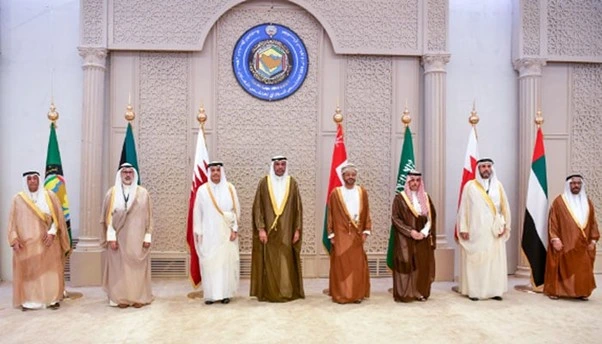Under Kuwaiti Foreign Minister Abdullah Ali Abdullah Al-Yahia, the 164th Gulf Ministerial Council meeting in early March came to an intense declaration denouncing a slew of deadly incidents in South Asia and abroad. Comprising the six members of the Arabian Peninsula, Saudi Arabia, Kuwait, the United Arab Emirates, Qatar, Bahrain, and Oman, the Gulf Cooperation Council (GCC) expressed in a thorough declaration great concern over growing violence, called for diplomatic solutions to long-standing regional conflicts, and underlined its ongoing support of peace and stability in Asia and Africa.
Among the issues covered most importantly was the criticism of recent attacks on Pakistani Balochistan province security facilities and a train. These March events brought several casualties and underlined the continuous security issues the area faces. The GCC showed support for the people of Pakistan as well as for government initiatives to fight terrorism and preserve national security. According to the proclamation, the strikes were cowardly acts meant to destabilize the area and compromise peace. It underlined the GCC’s resistance to all kinds of terrorism and underlined the importance of coordinated worldwide actions to face radical dangers.
Apart from the bloodshed in Balochistan, the GCC also denounced attacks on mosques in Pahalgam, situated in the province under Indian administration of Kashmir. Strongly decried as a breach of basic human rights and international humanitarian standards was the targeting of religious sites, especially places of worship. The Council underlined that every community has the right to practice their faith free and safely without regard to prejudice or violence.
Though countries were not mentioned, the declaration also covered instances of violence in African countries. These denials point to the GCC’s larger concern with the mounting unrest in certain parts of the Global South and its will to actively support peace and cooperation all throughout the Muslim world and beyond.
The fact that the GCC acknowledged recent diplomatic advancement between Pakistan and India was a noteworthy highlight of the 164th conference. The Council greeted the pledge to a ceasefire accord along the Line of Control (LoC), the de facto border separating Kashmir under Indian administration from Pakistan administration. Considered as a rare friendly gesture between the two nuclear-armed neighbours, this development was hailed as a hopeful first step towards defying tensions in a volatile area to be lowered.
The Gulf Ministerial Council also pushed for the United Nations Military Observer Group in India and Pakistan (UNMOGIP), which keeps an eye on ceasefire violations along the LoC, strengthened. The Council underlined that a strong and capable presence of UN observers could help to avoid misinterpretation and thus additional violence between the two parties. The declaration said, the UN’s involvement is crucial in fostering in the area openness, confidence, and responsibility.
The Council’s remarks underlined several times the need of settling conflicts using diplomatic and peaceful channels. Within South Asia, this was especially pertinent to the long-standing Kashmir dispute. The GCC reaffirmed its support of communication and negotiations as the only feasible route ahead and denounced the use of armed force or coercive threats as official instruments of statecraft.
The proclamation also urged India and Pakistan to embrace the ideas of good neighbourliness. These comprise respect for one another, non-interference in each other’s personal concerns, and joint effort on common interests. In this sense, the GCC accepted the positive contribution Saudi Arabia made in lowering tensions between New Delhi and Islamabad. The diplomatic activity of Riyadh was valued since it helped to create a more stable security scene on the subcontinent.
Especially in reference to Kashmir, the Council connected the possibility for enduring peace in South Asia to the execution of UN resolutions. The allusion to UN frameworks reminded one of the responsibilities of the international community and the need of multilateral methods in settling firmly rooted conflicts. Stability, the Council said, cannot be forced but must be developed on legal, political, and humanitarian bases acknowledged by all parties.
More broadly, the GCC cautioned against using force or threats in the area. It urged all countries to practice moderation, stay away from provocations, and refrain from unilateral policies meant to aggravate conflicts. The proclamation made it abundantly evident that regional collaboration and a shared commitment to non-aggression are absolutely entwined with peace and development in South Asia.
The Council’s reaffirmation of these values reflects not just its conformity with world standards but also of its own strategic objectives. Key actors in world energy markets and growingly powerful voices in geopolitics, GCC governments have a stake in a consistent and predictable security situation in Asia. Regional disputes, particularly those involving nations like India and Pakistan, might have an impact on trade paths, energy corridors, and the larger economic environment the Gulf states negotiate.
The 164th Gulf Ministerial Council meeting was distinguished by a clear and constant message: violence and extremism, whether in Pakistan, Kashmir, or Africa, must be publicly denounced and all conflicts must be handled by dialogue rather than confrontation. The Council’s demands for enhanced UN missions, respect of international law, and encouragement of regional cooperation point to its aim to be a positive diplomatic agent on the world scene.
The statement released by the Kuwaiti government on behalf of the GCC emphasizes the bloc’s dedication to not only Middle Eastern regional stability but also to more general peace-building initiatives in South Asia and Africa. It shows a growing awareness among the Gulf governments of the linked character of world security issues and the necessity of consistent, moral reactions against political unrest and bloodshed.








